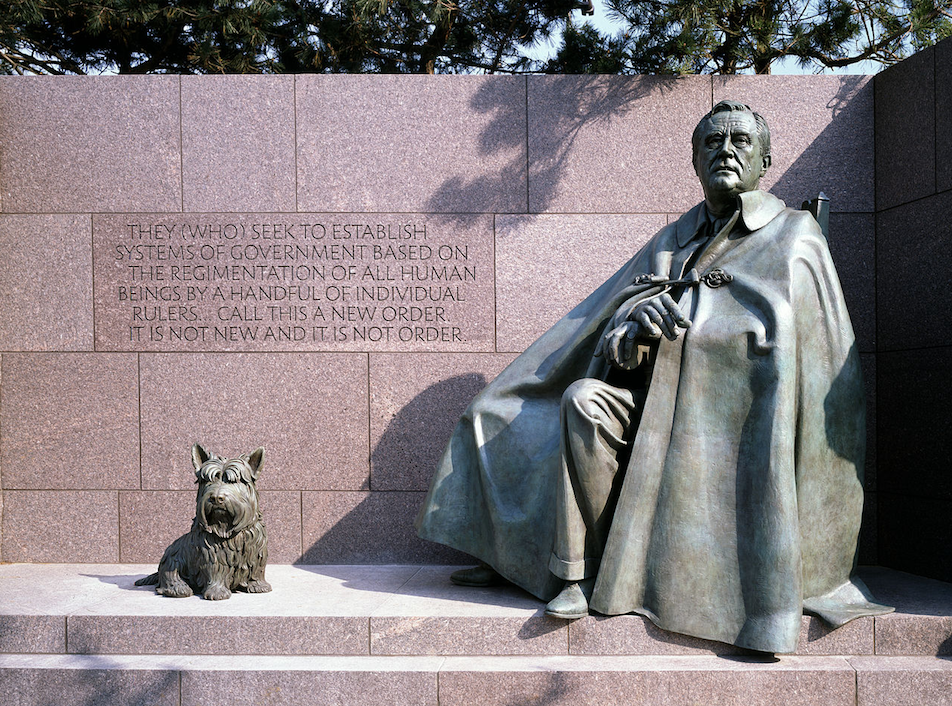Courtesy of Wikimedia Commons
Since the 1970s, America has witnessed two significant political realignments. As the Democrats became the party of science and secularism, the GOP branded itself the custodian of American Christianity. This latter alliance has allowed Republicans to monopolize the moral discourses of tradition and “the family” while the left staked its claim to a more humanist terrain (equality, secularism, acceptance of science).
But the Democrats have over-adjusted, ceding key intellectual and cultural ground to the Republicans in the new battle over the West.
When President Trump addressed the G-20 Summit in Hamburg, Germany, two months ago, calling for a defense of “[Western] civilization itself,” no Democrats bothered to reclaim the label. Most silently allowed Trump to subsume the West within conservative jurisdiction, while the few who protested did so to indict the concept itself as vague and perhaps racist. Meanwhile, the left failed to muster a single defense of the intellectual West, which brought us the democracy and regulated markets that we claim to champion. In the words of Captain Picard, “They assimilate entire worlds, and we fall back.”
Trump’s lukewarmness toward Russia is part of the Right’s same strategy. So-called “civilizational” conservatives have coopted the West for their narrative of racial and religious struggle against Middle Easterners. Russia, according to this coalition, is a friend to Christian America and a “front line” in the war against Islam. The left, of course, has lobbed numerous criticisms at Trump for his stance on Russia but not one that reclaims the Western narrative itself.
The mainstream left has met Trump’s conquests in the historical theatre with ambivalence. The apparent 2018 Democratic slogan—“I mean, have you seen the other guys?”—tells the whole story. Liberals have become permanent opponents. To be a Democrat is to look across the aisle and dislike what you see. Yet, liberalism cannot survive in the mainstream on such lean ideological remains.
Liberals cannot champion science, secularism, or social welfare without a firm grounding in liberal principles. Yet, by smuggling the West into conservative territory, the Trumpian right has put Democrats in a tight spot: either trudge left, into the Sanders orbit, or slink toward the right. Each option cedes liberal turf.
Instead, why not show that the emperor has no clothes? Between banning transgender troops, eroding the Civil Rights Act, and selling valueless politics, Trump has ignored the lessons of our collective political inheritance. The West has a long history of principled populism absent from Trump’s brand. FDR won the presidency four times by the workingman’s ballot. He enhanced the democratic principle, equipped workers for a new era of labor relations, and laid the groundwork for a sustainable market economy.
FDR’s strategy remains the best example of effective politics. He forged a liberal consensus strong enough even to win the admiration of conservatives fifty years later (Reagan was a lifelong admirer of Roosevelt). He brought Locke, Smith, and Montesquieu into the 20th century by expounding upon them—accommodating them to new circumstances.
This is the strategy that Bill Clinton highlighted in his first inaugural, when he stated, “There’s nothing wrong with America that cannot be cured by what is right with America.” Clinton touched upon the seminal difference between American liberals and their counterparts on the right and far-left. Conservatives often complain about liberals’ readiness to acknowledge (and even seek out) faults in America. Socialists have long bemoaned liberals’ devotion to the historical and legal legacy of America, which, in fairness, is fraught with injustice. Only a liberal, though, will acknowledge that the West offers both problems and solutions.
This is why liberals can’t afford to keep playing the part of the opposition. Movements like #Resist are good for galvanizing the masses, but they achieve little beyond filling the negative space of politics. Liberals must clarify what they stand for—and quickly.
The liberal caucus has a time crunch on its hands. Democratic representation in state government has fallen to its lowest level in decades. The national party is fractured between centrist and left-leaning groups. Funds are drying up. The long-awaited GOP collapse has yet to deliver consistent victory for the Democrats, and given current trends, the party ought to seriously contemplate the timeline of its own mortality. Democratic collapse—of the variety seen by Britain’s Liberal Democrats in 2015—would spell the end of the liberal political apparatus and a victory for Trump.
For now, the liberal caucus must set about defending its turf. The West survived the twentieth century in large part because of the liberal ideal. Its supporters must now remind the public—and the world—that Trump is no champion of that ideal, though he clearly would like to own its success.
